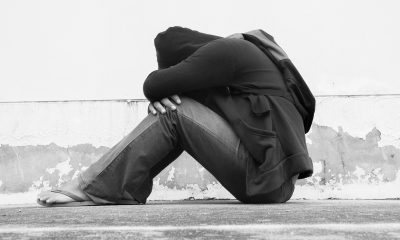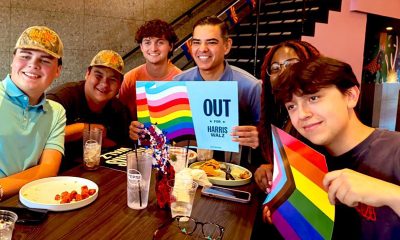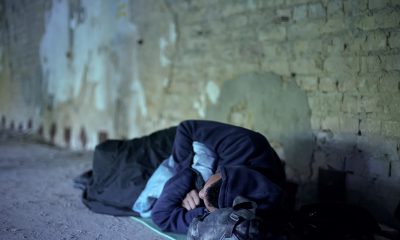National
Meet the new faces of LGBT juvenile corrections
DOJ, municipalities and former inmates are working to save gay youth
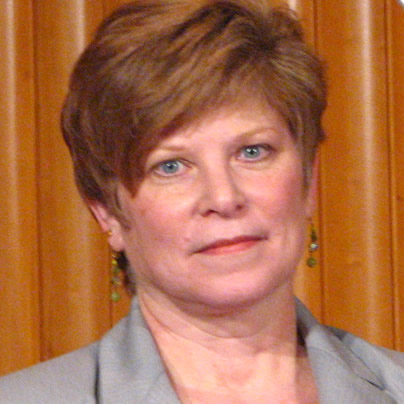
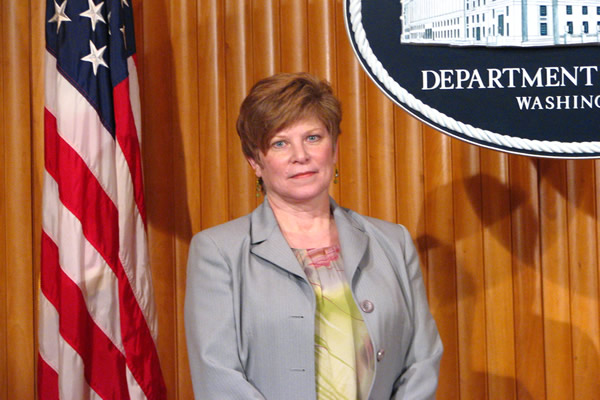
Lorie Brisbin, a program specialist with the Department of Justice, said many LGBT juveniles in custody are there for survival crimes. (Photo courtesy of DOJ)
By THOM SENZEE
LGBT youth have enough trouble adjusting to life in what is still, for lack of a better term, “a straight man’s world.” But for LGBT youth in custody, the world is often a supremely frightening place.
“There is a significant portion of LGBTI juveniles in custody who are there for what we can call survival crimes,” explains Lorie Brisbin, a program specialist with the Department of Justice’s Office of Juvenile Justice and Delinquency Prevention (OJJDP).
“In many cases, these are kids who have been kicked out of their homes by their families simply because of their particular orientation, be that lesbian, gay or what have you.”
Made homeless by their parents as adolescents or as teenagers, and forced to face a tough world on their own with no basic tools for living—such as work experience or identification cards—some LGBT youth turn to petty crimes in order to survive. Survival crimes range from stealing food from grocery stores to prostitution and burglary.
In fact, merely being a homeless minor after 10 p.m. amounts to a violation of curfew laws, not to mention truancy if they cannot stay in school after becoming homeless.
Of course, some homeless youth turn to more serious crimes. Regardless of how they end up in custody, LGBT juveniles find themselves in a system that is only now beginning to recognize that there is a difference in needs compared to their heterosexual counterparts that corrections officials must know in order to keep them safe and well.
“Corrections is a very closed system,” Brisbin said. “There is a lot of education that needs to go on in helping staff feel comfortable with certain issues.”
Two specific issues that could be considered the meat and potatoes of the over-arching problem of how to safely and healthfully manage LGBT juvenile inmates are isolation and gender-appropriate placement.
Getting those two issues right, according to experts, builds a foundation where both juveniles in custody and corrections staff are safer than they would be otherwise.
“For instance, if you have a gay male who is not willing to hide who he is—and most are more than willing to hide—the way it used to work, staff were traditionally going to isolate you for your own protection,” explained Laura Garnette, deputy chief probation officer at Santa Clara County, Calif. Juvenile Detention Division.
“But the courts have said that’s unconstitutional. And actually I say to them, corrections staff, that’s your job. It’s not the juvenile’s job to keep himself safe; that’s what you’re getting paid to do. You’re making them do your job by putting them in isolation.”
According to OJJDP’s Brisbin, Garnette’s employer is a model of safety, efficacy and ethical management of LGBT and intersex juveniles in custody.
“Santa Clara County is phenomenal,” Brisbin told the Washington Blade. “It starts with their perspective, looking at their policies and making their environment safer and more welcoming.”
“More welcoming” might sound like an odd phrase to use when talking about incarceration. But it is important to remember, according to Brisbin, as well as Deputy Chief Probation Officer Garnette and other corrections professionals the Blade spoke to in researching this story; juvenile detention is mandated to rehabilitate rather than simply punish, as is often the case in adult corrections systems.
“Santa Clara probation has worked hard to redefine juvenile corrections,” said Brisbin, speaking by phone from her office at the Department of Justice in Washington, D.C. “Now, when a youthful offender who is lesbian, gay, bisexual, transgender or intersex comes in, they are processed much differently, providing the best possible outcome for the general population and the staff.”
But it is not necessarily easy to bring change to the corrections establishment.
“You want to watch something entertaining, just tell a group of unenlightened corrections workers that they need to put a male-to-female transgender offender into housing with girls,” Santa Clara County’s Garnette said. “You’d think you had just told them the most hilarious or outlandish thing anyone ever said.”
Nowadays all youthful offenders in Santa Clara County are processed into and counseled within custody in a manner that is both neutral in terms of sexual orientation and gender identity.
“For instance, I might ask a male inmate if he has a girlfriend or if he has a boyfriend,” explains Garnette. “He might respond, ‘why would you ask me if I have a boyfriend; what do you think I am a fucking faggot?’”
“And then, of course, I respond, ‘well, why wouldn’t I ask? You could have either. How would I know which? There are plenty of gay young men who don’t fit stereotypes.’”
According to Garnette, that response safely opens the door for an honest answer if the youth is gay, while also planting a seed of tolerance if he is straight.
Santa Clara County neither isolates LGBT juvenile inmates individually, nor places them together in separate groups. Instead, officials and detention staff work with vigilance by observing and counseling all inmates to prevent physical altercations and eliminate bullying in real time—on the floors of housing units in its detention centers, 24/7.
“Isolation is not the solution,” Garnette said. “It’s our job to keep these kids safe by using our words, our eyes and our ears. Yes, it’s hard work, but simply isolating them is lazy and injurious. If you can’t do the job of keeping gay kids safe in the general population, then I’m sorry; get a different job.”
According to OJJDP’s Brisbin, a new vigor arrived in the juvenile corrections profession when, in 2012, the Justice Department issued national standards for ensuring that detention facilities conform to the 2003, “Prison Rape Elimination Act” (PREA) for the first time.
Among a litany of guidelines announced by Attorney General Eric Holder was a mandate to “incorporate unique vulnerabilities of lesbian, gay, bisexual, transgender, intersex and gender nonconforming inmates into training and screening protocols.”
Brisbin organizes workshops for corrections officials and juvenile detention facilities workers around the nation. Her training sessions are designed to introduce technical tools to help realize the promise of PREA, which is an end to rape and sexual abuse behind bars.
“For example PREA calls for changes in language that has been used in facilities in the past,” Brisbin said. “We talk about respectful communications—how do you do it and still get the kind of behavior you need for conformity in a locked-down situation.”
According to her, the words once used recklessly by officials at juvenile lockdowns can actually incite abuse.
“But words can also help prevent violence,” she said. “If you have a verbally disrespectful environment, that can be very, very unsafe. Don’t use terms that are inherently offensive. For instance, it used to be respectful to use the term hermaphrodite; that’s no longer seen as acceptable to use.”
Transgender and intersex youth in custody face particularly tough circumstances finding their places in detention settings. However well intentioned, detention-facility staff with varying levels of education can find the task of helping transgender, questioning and intersex youth safely fit in at “juvie” quite daunting.
Consider the latter of those three categories of youth: The Intersex Society of North America says the complexity of intersexuality makes it a subjective issue—albeit with real biological (i.e., chromosomal and genitalia-related) aspects.
“[Intersexuality] is a socially constructed category that reflects real biological variation,” reads the introductory statement on the group’s homepage. “To better explain this, we can liken the sex spectrum to the color spectrum. There’s no question that in nature there are different wavelengths that translate into colors most of us see as red, blue, orange, yellow. But the decision to distinguish, say, between orange and red-orange is made only when we need it—like when we’re asking for a particular paint color…”
When even experts and advocates admit that making gender distinctions among intersex persons can be similar to knowing the difference between burnt-orange and maroon-rust, how is a juvenile hall counselor working the graveyard shift in a Midwest suburb supposed to know how to refer to an intersex juvenile inmate?
The answer, according both Brisbin and Garnette, is surprisingly simple—let the individual inmate decide. They say the same rule applies to transgender youth in custody.
“The very worst thing you can do is call a transgender girl ‘he’ or ‘him,’” she said. “Not only can that lead to violence from other inmates, which puts the staff in danger as well as the kids in the facility, but it’s emotionally violent. It does real harm.”
Garnette, who is a lesbian, entered the corrections field at the end of the 1980s.
“It was about as different then compared to today as you can imagine,” she said. “This is an exciting time to be working in this field. In the past 10 years we have seen a change to evidence-based policies and procedures that wasn’t there before.”
According to Garnette, there was a time in her early career when she had bosses whose approaches to juvenile corrections were strictly tough for sake of toughness, or more permissive simply for the sake of permissiveness.
“Either way, it wasn’t about using research for evidence-based outcomes,” she said. “Now it’s exactly the opposite; that’s just what we do.”
Ten years ago it might have been impossible for Mark Seymour, a former inmate who served time in prison for a drug offense, to work with leading practitioners and researchers in the juvenile corrections field.
“When I got out of prison in 2010, I knew I wanted to do something to make it better for LGBT youth in custody because I know first-hand how bad things like being put in isolation—just because you happen to be gay—can be,” Seymour told the Blade. “It took everything I had within me to not lose my mind in isolation.”
Seymour is the first fellow at the National Center for Youth in Custody. He is currently helping implement a pilot program to disseminate the fast-growing body of evidence-based knowledge about how to better meet the stated missions of juvenile corrections facilities: rehabilitating youthful offenders.
“The exciting thing is that a big part of this new push to bring scholarship, research and practical knowledge about what works is a focus on LGBTI kids,” explains Seymour. “The youth of our community, for the first time, are part of the conversation.”
U.S. Supreme Court
Supreme Court to hear Md. religious freedom case on Tuesday
Advocacy groups to rally outside during Mahmoud v. Taylor oral arguments

Activists on Tuesday will hold a rally in front of the U.S. Supreme Court as the justices hear oral arguments in a case that will determine whether schools are violating parents’ religious freedom by not letting them opt their children out of learning about LGBTQ-specific topics.
Mahmoud v. Taylor is a case out of Montgomery County about parents who wish to opt their children out of LGBTQ-themed lessons in public schools for religious reasons.
Montgomery County Public Schools, after initially allowing parents to opt their children out, changed the policy in March 2023.
The plaintiffs — Tamer Mahmoud, Enas Barakat, and other parents — argue “the storybooks were chosen to disrupt ‘cisnormativity’ and ‘either/or thinking’ among students.”
“The board’s own principals objected that the curriculum was ‘not appropriate for the intended age group,’ presented gender ideology as ‘fact,’ ‘sham[ed]’ students with contrary opinions, and was ‘dismissive of religious beliefs,’” according to the petition on the Supreme Court’s website.
The petition goes further, saying the parents are “not challenging the curriculum, but arguing that compelling their elementary-age children to participate in instruction contrary to their parents’ religious convictions violated the Free Exercise Clause. Construing Wisconsin v. Yoder, the 4th Circuit found no free-exercise burden because no one was forced ‘to change their religious beliefs or conduct.’”
The Coalition for Inclusive Schools and Communities, an organization that aims to bring together “advocates, educators, families, and organizations committed to inclusive, affirming, fact and science-based education,” will participate in the “Rally for Inclusive Education” rally outside the Supreme Court alongside Live In Your Truth and the Montgomery County Pride Family.
“Inclusive education isn’t just a value — it’s a necessity,” said Phillip Alexander Downie, co-chair of the Coalition for Inclusive Schools and Communities and CEO of Montgomery County Pride Family. “The right of every child to learn in an environment where they see themselves reflected, affirmed, and respected is under attack. This rally is our moment to protect that right — and ensure future generations inherit classrooms rooted in truth, equity, equality, and justice.”
The Coalition for Inclusive Schools and Communities says the rally is a “nonpartisan community gathering rooted in education, advocacy, and solidarity.”
“The focus of this event is to uplift the importance of inclusive learning environments, celebrate the power of diversity in our schools, and amplify the voices of those most impacted by exclusionary practices and rhetoric,” it said.
The rally will feature speakers from across the country, including students, educators, civil rights leaders, and authors who will give their own testimonies as to why it is important to have inclusivity in primary education. Trans Maryland, the National Women’s Law Center, MoCoPride Center, and Authors Against Book Bans are among the LGBTQ groups sponsoring the event.
National
EXCLUSIVE: Rodrigo Heng-Lehtinen to step down from Advocates for Trans Equality
A4TE formed last year when two transgender rights groups merged
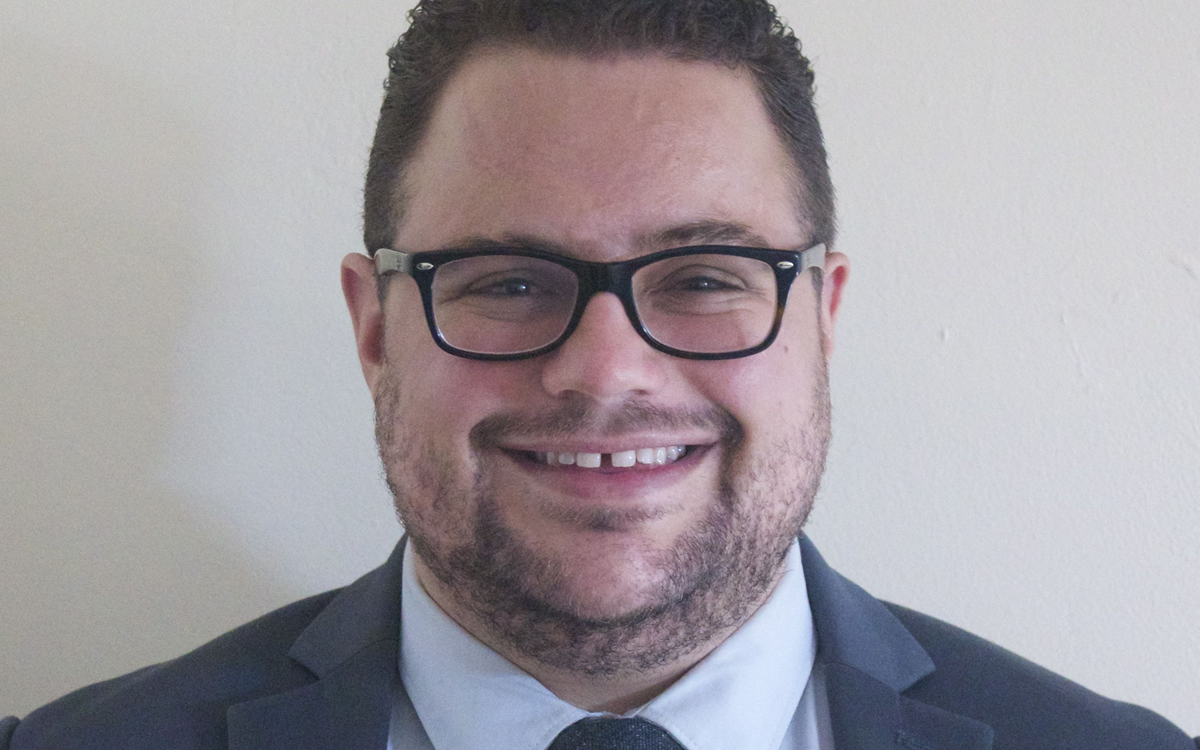
Advocates for Trans Equality Executive Director Rodrigo Heng-Lehtinen on Monday announced he will step down on April 30.
The Transgender Legal Defense and Education Fund and the National Center for Transgender Equality formed Advocates for Trans Equality last year when they merged. Heng-Lehtinen was previously NCTE’s executive director.
“Now that we’ve made it through the merger, and A4TE is established as a new, prominent institution fighting hard for trans equality, it’s time for me to take my next step,” said Heng-Lehtinen in a press release that Advocates for Trans Equality sent exclusively to the Washington Blade. “When Andy (Hong Marra) and I began envisioning the merger, I committed to seeing it through. I’m proud that now our vision has been realized. A4TE has not just launched, but is fully up and running, delivering results for trans people around the country. With A4TE gaining momentum, I’m now ready to move on to my next chapter.”
Heng-Lehtinen, whose mother is former Florida Congresswoman Ileana Ros-Lehtinen, in the press release stressed he “will be focusing on changing hearts and minds.”
“With my background in persuasion and messaging, it’s where I can make the biggest difference, and what I feel called to return to in this era of anti-trans backlash,” said Heng-Lehtinen. “I will still be fighting shoulder-to-shoulder with everyone (in) the trans movement, simply in a different capacity.”
Marra, who is Advocates for Trans Equality’s CEO, praised Heng-Lehtinen and said the organization’s work will continue.
“We thank Rodrigo for his years of dedicated leadership and service,” said Marra. “A4TE will continue to deliver on our promise to advocate for the lives of trans people who need us now more than ever. We remain undaunted by our endeavor to ensure trans people and our families are no less than free and equal and treated with dignity and respect.”
Louisiana Trans Advocates Executive Director Peyton Rose Michelle also praised Heng-Lehtinen.
“Rodrigo has been a steady hand and a bright light in this work,” she said. “He’s someone who shows up with integrity, kindness, and a deep commitment to meeting this political moment with courage. I’ve always felt deeply supported and heard by him, which is something I value deeply.”
“I fully support him as he steps into this new chapter, and I know his clarity of vision and heart-forward leadership will keep shifting this landscape back toward justice for trans people, and therefore, all people,” added Michelle.
U.S. Federal Courts
Federal judge blocks Trump passport executive order
State Department can no longer issue travel documents with ‘X’ gender markers

A federal judge on Friday ruled in favor of a group of transgender and nonbinary people who have filed a lawsuit against President Donald Trump’s executive order that bans the State Department from issuing passports with “X” gender markers.
The Associated Press notes U.S. District Judge Julia Kobick in Boston issued a preliminary injunction against the directive. The American Civil Liberties Union, which represents the plaintiffs, in a press release notes Kobick concluded Trump’s executive order “is likely unconstitutional and in violation of the law.”
“The preliminary injunction requires the State Department to allow six transgender and nonbinary people to obtain passports with sex designations consistent with their gender identity while the lawsuit proceeds,” notes the ACLU. “Though today’s court order applies only to six of the plaintiffs in the case, the plaintiffs plan to quickly file a motion asking the court to certify a class of people affected by the State Department policy and to extend the preliminary injunction to that entire class.”
Former Secretary of State Antony Blinken in June 2021 announced the State Department would begin to issue gender-neutral passports and documents for American citizens who were born overseas.
Dana Zzyym, an intersex U.S. Navy veteran who identifies as nonbinary, in 2015 filed a federal lawsuit against the State Department after it denied their application for a passport with an “X” gender marker. Zzyym in October 2021 received the first gender-neutral American passport.
The State Department policy took effect on April 11, 2022. Trump signed his executive order shortly after he took office in January.
Germany, Denmark, Finland, and the Netherlands are among the countries that have issued travel advisories for trans and nonbinary people who plan to visit the U.S.
“This ruling affirms the inherent dignity of our clients, acknowledging the immediate and profound negative impact that the Trump administration’s passport policy would have on their ability to travel for work, school, and family,” said ACLU of Massachusetts Legal Director Jessie Rossman after Kobick issued her ruling.
“By forcing people to carry documents that directly contradict their identities, the Trump administration is attacking the very foundations of our right to privacy and the freedom to be ourselves,” added Rossman. “We will continue to fight to rescind this unlawful policy for everyone so that no one is placed in this untenable and unsafe position.”
-

 State Department4 days ago
State Department4 days agoHIV/AIDS activists protest at State Department, demand full PEPFAR funding restoration
-

 Brazil4 days ago
Brazil4 days agoUS lists transgender Brazilian congresswoman’s gender as ‘male’ on visa
-

 District of Columbia4 days ago
District of Columbia4 days agoCapital Pride wins $900,000 D.C. grant to support WorldPride
-

 Obituary3 days ago
Obituary3 days agoLocal attorney, LGBTQ rights advocate Dale Sanders dies at 75

